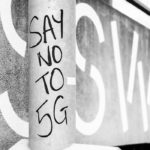 The Covid pandemic had no shortage of conspiracy theories associated with it, whether it being caused by 5G technology or deliberately released by the Chinese state. During the pandemic, surveys suggested around 71% of Americans had heard at least one such conspiracy theory, with 25% believing them to be true.
The Covid pandemic had no shortage of conspiracy theories associated with it, whether it being caused by 5G technology or deliberately released by the Chinese state. During the pandemic, surveys suggested around 71% of Americans had heard at least one such conspiracy theory, with 25% believing them to be true.
Research from the Kellogg School aims to shed light on how these conspiracy theories gained ground. The study assesses existing research on the various conspiracy theories existing around Covid-19, before proposing a framework for how these theories spread and finally exploring how such a spread could be curtailed.
Social spread
Perhaps unsurprisingly, social media has been crucial in the spread of conspiracy theories around Covid. This was especially so as the lockdown measures drove us online in search of social contact with others. What awaited us was often a trove of misinformation.
The researchers argue that the polarized and highly politicized nature of American society made it a fertile breeding ground for conspiracies. The pandemic then exacerbated this desire to believe dark forces are at work.
“A long line of work has shown that when people are in situations where they lack control, they’re more likely to believe in conspiracy theories,” they say.
The algorithms that power the social media platforms have also helped to spread conspiracy theories as they encourage us to consume more content that is similar to that previously enjoyed. This can be particularly dangerous as false posts spread just as quickly as true ones do. It’s a situation that has also had to contend with bot accounts, often run by nation-state actors.
“Bots have been driving public attention without public awareness,” the researchers say. “And they’re the ones posting the more grandiose conspiracy theories.”
Birds of a feather
Social communities also play a major role in how deeply entrenched conspiracy theories become. Various online communities have emerged that center on conspiracy theories, with these communities reinforcing the strange beliefs on a daily basis.
“Online, we have so much opportunity to search for things to support our case. It just makes [these beliefs] unbelievably sticky and hard to change,” the researchers say.
This sense of community is then often exacerbated by a distinct language within the communities to furnish a sense of belonging and identity that forges a sense of being united against a common enemy. This makes changing the mind of someone under the spell of a conspiracy theory exceptionally difficult.
Prevention is best
As such, the prevention of conspiracy theories taking hold in the first place is the best approach. The method for achieving this is both contentious and challenging, however.
For instance, some argue that social media platforms should ban any conspiracy-related content, but evidence suggests that while this can slow the spread of misinformation, it doesn’t eradicate it entirely.
A slightly less blunt instrument is to try and provide training to people to help them spot and ignore misinformation. The authors argue that these approaches are more effective than trying to change people’s minds once conspiracy theories have taken hold.
Indeed, even getting to grips with social trends like isolation, loneliness, and social disconnection can help, especially if people can be encouraged to get offline and go outside. Boosting people’s mental health can often be an effective buffer against conspiracy theories taking hold.
The authors hope that as vaccinations become the norm and the danger posed by the virus begins to abate that this will also help to curb the spread of misinformation.
“People will feel more under control—and then, hopefully, a lot of the conspiracy theories will start diminishing,” they conclude.